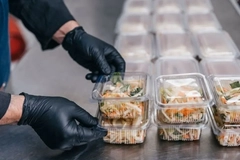Brands that help customers with sustainability set for growth, panel suggests

25 Apr 2018 --- A Consumer Panel report, conducted by BillerudKorsnäs, reports top consumer finding: helpful brands. By becoming a part of consumers increasing ambition to become more sustainability orientated in everyday life, brands can become more successful. In this way, they become “helpful” brands. The BillerudKorsnäs Consumer Panel shows that working through packaging sustainability will be a very effective tool to in gaining benefits and growth on all geographic markets.
Interestingly, 64 percent of global consumers would consider changing a brand for another if it provided a more sustainable packaging choice, the panel reports.
“Help the customer become a hero.”
The 2017 Consumer Panel report is a collation and measurement of the views from BillerudKorsnäs’ consumer panel, which is spread among 16 major cities around the world. The study focused on people’s views on packaging sustainability: how packaging can help consumers make sensible choices about what and how they consume; littering, climate change, product waste and recycling. Being a “helpful brand” had the highest score of all factors from the 2017 panel.
The aim of the study was to, according to BillerudKorsnäs, inform, inspire and motivate brand owners about packaging sustainability and the vast opportunities engaging with it can bring.
Primarily, “helping the consumer become a hero,” will aid brands in growth. It seems consumers are ready and willing to do their part and to change their sustainable behavior, but they may need help. The top three areas that identified as the most important concerning packaging sustainability were: reducing food waste, increasing levels of recyclable packaging and reducing plastic littering in the oceans.
Branded packaging can be more than logo, colors, textures and shapes. Making the packaging a conceptual part of the brand’s positioning can truly lift the consumer experience and show that you and the consumer are part of the same journey toward sustainable consumption.
Packaging is a clear point of contact with the consumer, regardless of sales channel, and therefore a strategic tool for a brand that is helpful in people’s increasing ambition to become more sustainable-oriented in everyday actions and choices.
 The panel identified a set of key findings from the content, particularly related to packaging:
The panel identified a set of key findings from the content, particularly related to packaging:
• Helpful brands – the key to success: “Being helpful is a general, holistic approach to your business model, encompassing both why and how you do business. It is also about operating close to your customers: listening, interacting and innovating to make it easier for them to act sustainably.”
• Packaging as a strategic tool: “Brand owners that are able to activate and engage consumers, to communicate the value and functionality of the packaging and to make consumers feel their behavior has a positive impact, will be rewarded through preference and loyalty.”
• Packaging as a sustainability enabler: “Food waste is the highest priority for consumers when discussing the global challenges that packaging can help solve in the future.”
• Making recycling easy: “Making it easy and rewarding to recycle is number one on consumers’ list of dream results of future packaging innovation.”
• Going beyond the obvious: “Consumers are asking for true innovation – new ideas that change the role of packaging in their everyday lives.”
Innovations that meet consumer demands, as identified by BillerudKorsnäs:
Many brands around the world are already acting on packaging sustainability. The beach plastic bottle, made 25 percent out of recycled beach plastics, for Head & Shoulders is one example where just packaging makes the difference.
Furthermore, Arla Foods, a global top four dairy company, has a clear strategy to make packaging differentiate them from competition with high impact on environmental footprint. The recent introduction of a new Crème Fraiche container in carton instead of plastic allow consumers to recycle tub and lid as paper with higher recycling rates as one benefit. In Sweden, Arla now reached 80 percent renewable packaging materials in total, another benefit.
Swedish fashion brand Filippa K has collaborated with RePack, a reusable packaging solution for e-commerce. When customers order online, they can choose to have their order sent in a reusable RePack, that they register upon arrival and then simply return by dropping it into any post box, anywhere in the world. As a thank you, the customer will get a discount voucher. This can eliminate trash and reduce carbon footprint compared to disposable plastic packaging.
The report also includes The Boxed Water company, who, they say, disrupted the packaged water industry when they introduced a carton packaging with a bold statement, “Boxed water is better,” showing that cartons can be a premium packaging and could even exceed standard plastic bottle brands.
BillerudKorsnäs plan to conduct annual follow-ups with the panel to update their information.
By Laxmi Haigh











